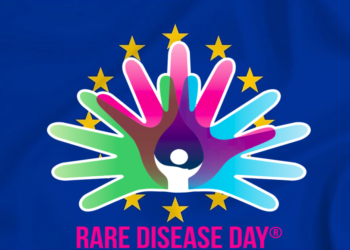Brussels – Brussels takes steps to make the European Health Union more concrete and, today (January 16), launched an open call to join a Critical Medicines Alliance to address potential drug shortages at the EU level.
At the beginning of December, the EU executive drafted the first list of 200 active ingredients used for drugs for human use considered “critical” for the EU, prepared by the European Commission, the European Medicines Agency, and heads of Medicines Agencies of the Member States. The Alliance is the next step to ensure its community-wide supply.
It will develop recommendations and advise the Commission, Member States, and other EU decision-makers on how to address long-standing drug shortages. The Alliance’s work will focus on drugs with the highest risk of shortages and the greatest impact on health systems and patients (based on a list the Commission will compile each year).
Sources in the Italian industry of the sector say that ‘the idea is right, we will follow with great attention this attempt to respond to the critical issues that have arisen in particular since the Covid outbreak’. But the hope is that this activity launched by the Union’s executive will not stop at ‘widely consumed’ drugs, such as paracetamol, just to make us understand, ‘but that it will also deal holistically with new technologies and the new diseases that are unfortunately emerging’. In short, according to Italian industry, ‘it is necessary for this project to also look to the future and the innovative products that will be needed’.
The future Alliance will have a 5-year duration and begin its work next spring, publishing initial recommendations on actions to be taken to improve the supply of essential medicines by the fall. Companies and organizations will be able to take part, but it will be also open to member states, local and regional authorities and their agencies, social partners, civil society, health professionals, patients, consumers, and other interest groups, bodies, and agencies of the EU.
The launch of the Alliance “marks the beginning of a concerted push to strengthen and modernize the production of essential medicines in the EU and diversify international supply chains,” said EU Health Commissioner Stella Kyriakides, calling it “a new industrial pillar of our strong European Health Union.”
Revision of EU standards
In April, Brussels updated the pharmaceutical strategy with the first major overhaul in more than 20 years (the last legislation was in 2004) with a new legislative framework that focuses on access to medicines at low prices, innovation, and sustainability of the pharmaceutical industry, but also on a crisis-proof regulatory framework and initiatives against drug shortages and antimicrobial resistance. The European Commission wanted to strengthen obligations for companies to report drug shortages and withdrawals in advance and the development and maintenance of shortage prevention plans to fight the risk of drug shortages.

As part of this new pharma legislation, the Commission announced in recent months that it will work to draw up a list of medicines to be considered “critical” at the European level as part of the joint task force on the availability of medicines authorized for human and veterinary use, specifying further that the purpose of the list is to help ensure that the most critical medicines for health systems in the Union are always available.
At the end of October, it adopted a communication dedicated to drug shortages, announcing a series of actions to better prevent and mitigate potential drug shortages in the EU by promoting the use of a voluntary European solidarity mechanism for medicines to deal with possible supply crises.
English version by the Translation Service of Withub







![Un motoscafo in Svezia. Nell'Ue si pone un problema di mancato riconoscimento delle patenti nautiche [foto:
Matti Blume, Wikipedia Commons. Copyright: Creative Commons Attribution-Share Alike]](https://www.eunews.it/wp-content/uploads/2024/11/motoscafo-Saltsjoen_Stockholm_P1090679-120x86.jpg)
